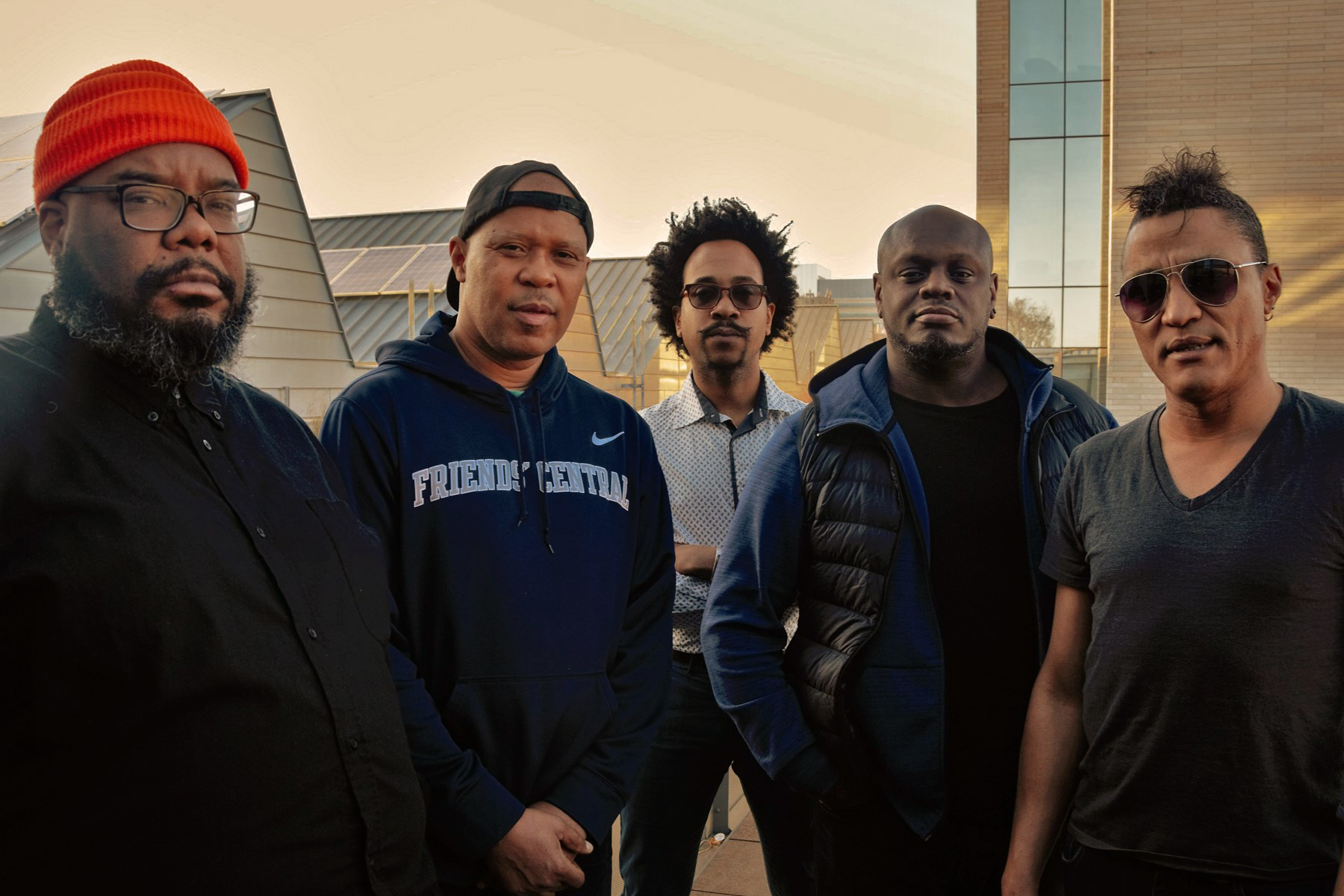Steve Coleman’s music resembles flight in more ways than one. For the listener, it is a flight of the senses: nebulous and strange, challenging and innovative. For Coleman and his band, Five Elements, it’s a flight of the imagination. Brisk drumming, propulsive singing, smooth guitar, and piercing trumpet join hands with—and break away from—Coleman’s saxophone. The music is kept aloft by change, creating something new at each moment.
Needless to say, Coleman is a unique artist: he approaches musicianship as a way to express culture and philosophy. To this end, he has spent the last several years leading a nonprofit and musical coalition called M-Base Concepts, which organizes and funds improvisational, nontraditional music. On his personal website, Coleman clarifies that it is neither a “style” nor “an excuse to play odd time signatures,” but “a way of thinking about creating music.” “All of the elements in the music,” he continues, “come from life experiences.”
It’s fitting, then, that Coleman recently returned to the place where he had his first life experiences: the South Side, where he was raised, and where, for two weeks in April, he had his third residency at the University of Chicago’s Logan Center for the Arts.
Coleman’s series of residencies began, he said, after winning the MacArthur ‘Genius’ Grant in 2014, which gave him the resources to return to Chicago and give back to the musical community that gave him his start. This tenure ended on April 29, with his acceptance of the UofC’s 2017 Rosenberger Medal (which is awarded to individuals deemed by the university to be “of great benefit to humanity”), putting him in the company of Toni Morrison, Jeanne Gang, and Kerry James Marshall. His acceptance was followed by the main event of the night: a performance and lecture jointly titled “The Eagle and the Lark.”
Coleman’s lecture explained the unity of theory and practice underlying his work: the lark “represents intuition,” and the eagle “represents logic,” he said. The lark sings beautifully, but can’t fly very high—so it climbs onto the eagle’s back to bring its song “up to the gods.”
This explanation ultimately found expression in the Five Elements’ performance, which, like much of Coleman’s work, was freely improvised. The band worked in a series of complex polyrhythms, with the D.C. rapper Kokayi contributing abstract, scat-like lyrics. Everything aviary made its way into his calls and shouts: wind, the sun, birds, Twitter.
Support community journalism by donating to South Side Weekly
In his lecture, Coleman said that he draws inspiration from world musical tradition, scientific discovery, and spirituality, with the aim of “expanding human consciousness.” In an email exchange with the Weekly, he refused to pin these inspirations down to a single point: “The answer to this question is too big. Let’s just say that I’m in some way inspired by Nature (on Earth, Solar System, etc.) through the perception of humans. Specifically I’m working on a lot of things at once, but it’s all connected to Nature.”
Though the theoretical side of Coleman’s craft—and the musical side, for that matter—is quite heady, he also took the time to describe the more straightforward work that he and the Five Elements do through education. With the youth organization Free Write, the band visits incarcerated young people across the city with the aim of showing them that “they have so many more options than they think.” Coleman and the band also work with Chicago Public Schools to provide workshops for young musicians, which he says are the best way to improve musically.
He would know, having had a formative experience of his own when he was young with the famous saxophonist Sonny Stitt. Coleman went on to mentor and track the development of musicians in Chicago and elsewhere, like the trumpet player in his own ensemble, Jonathan Finlayson. “Now he is 36 years old,” Coleman said. “He joined my band when he was 17 years old, so he has spent more than half of his life as a member of my ensemble.”
After the concert, Coleman spent some time talking to the audience and signing CDs—the last time he would do so before leaving Chicago. As of now, he’s returning to his home on the East Coast for a residency at New York’s Village Vanguard before heading to Europe for a tour. Whether or not he and the Five Elements will return to Logan for a fourth year of residency remains uncertain: “I would like to,” Coleman said, “but this depends on getting funding to help come back. I am doing everything [through M-Base Concepts], and if we can keep receiving enough donations then we can keep this going.”
As for the future of his music, Coleman is equally indefinite. “I have not the slightest idea, I just hope I keep learning and keep moving.” It’s only fitting that in Coleman’s life—as in his music—everything is in motion.
Kyle Oleksiuk is contributor to the Weekly and a third-year student at the University of Chicago. This is his first piece for the Weekly.

